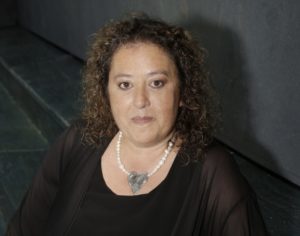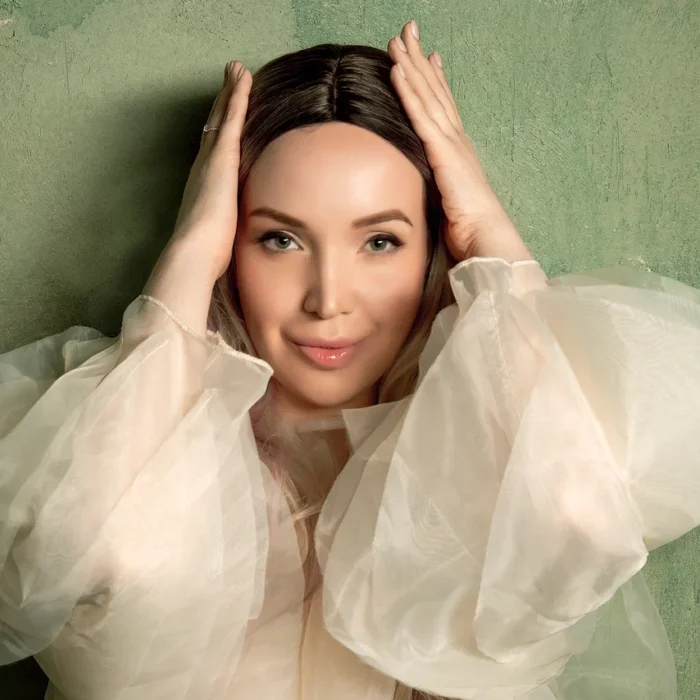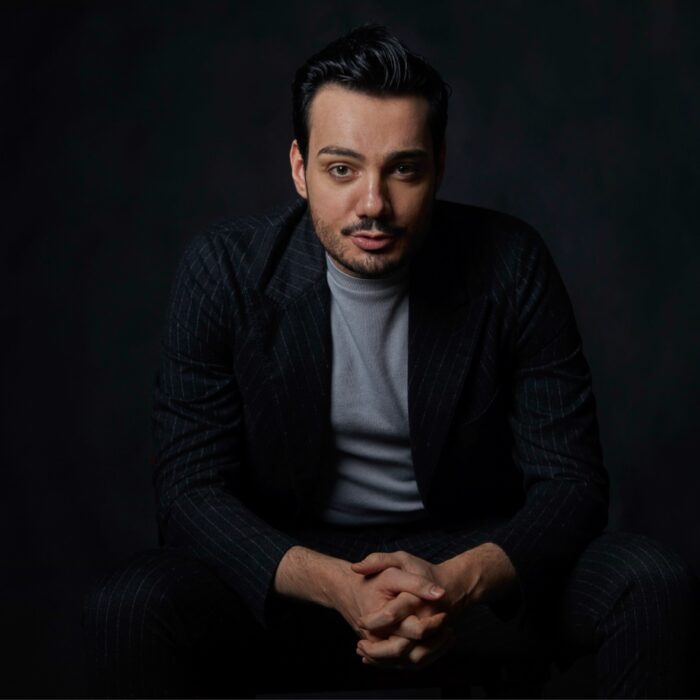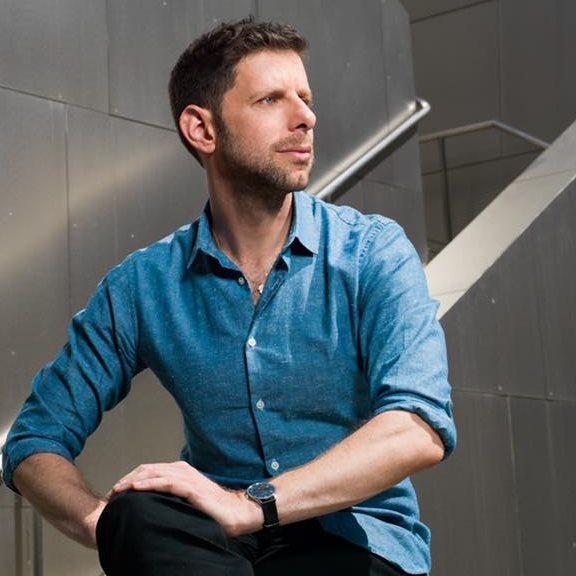
Q & A: Wexford Festival Opera’s Artistic Director Rosetta Cucchi on This Year’s Festival
By Alan Neilson(Photo: Armati Bacciardi)
It is that time of year again when the temperatures start to drop and the nights start to draw in, which also means it is time to head off to Wexford for its annual opera festival, which will run from October 21st to November 6th. After two years of disruption caused by the measures aimed at controlling COVID, everything is finally returning to normal.
Well, maybe not normal! For visitors who have not been to Wexford since 2019, they are in for a few pleasant surprises. The new artistic director, Rosetta Cucchi, who took over from David Agler in 2020, has introduced a number of innovations, which have added to the sparkle and energy of the festival.
There are now more events throughout the day; changes have been made to the “short opera” format; and the festival has reached outwards into the town so that performances are no longer restricted to the Opera House, St Iberius’ church and Whites hotel. Don’t be shocked to see a singer turn up for a short recital in a local tea shop while you are sipping your coffee.
OperaWire met up with Rosetta Cucchi to ask her about this year’s festival, and what has been happening over the past two years.
OperaWire: What is the theme for this year’s festival, and can you say something about each of the three main operas?
Rosetta Cucchi: Last year’s theme was “Shakespeare in the Heart” because, for me, Shakespeare is the poetic writer used by composers for their operas. This year’s theme is “Magic and Music.” Magicians, gods, ghosts and witches are so closely linked with opera. Throughout the history of opera, composers have populated their operas with these characters, but this is not the only reason I have focused on magic for this year’s festival; I think that after the period we have just been through, which has been a really awful, magic is a way to feel lighter, to feel free, to fly beyond this world, which is not always a pleasant reality.
The theme gave me the opportunity to choose from plenty of operas. I have chosen three works that are very different from each other, even though they are all linked through magic.
The first is “La Tempesta,” which has not been done in modern times. It was created by what I like to think of as a united European task force. It was commissioned by a London theatre, The Haymarket, and was written by two French men, the composer, Halévy, and the librettist, Scribe, but was performed in Italian, as opera in Italian was very popular in London at that time. And of course it is based on Shakespeare’s play, “The Tempest,” which is one of his most magical works.
Halévy’s music is closely linked to Italian bel canto. When I played the prologue on the piano, I was really touched by its Romanticism; it looks forward to the music that would come later, and I thought this is definitely an opera we need to explore. We are now in rehearsals, and it is evident that this is a work which really needed to be done.
When I was discussing the opera with the director, Roberto Catalano, we talked about nostalgia, and how today’s young people experience a nostalgia for the present. The speed of change is now so fast that that young people have no knowledge of what is happening around them. In almost the same moment, the present becomes the past. We are developing the production with these ideas in mind, and it is coming along very well indeed.
The second opera is David’s “Lalla Roukh” which has been on my wish list for a long time. This is very different kind of opera. It is a fairy tale that reminds me of “One Thousand And One Nights” and “Scheherazade.” It is also an opera linked closely to Ireland, because it is based on a poem written by the Irish writer Thomas Moore.
However, I was not sure whether or not to do it at this point in time, but then an English man called Michael Moude, who told me that his mother loved Thomas Moore’s “Lala Roukh,” and when I told him it was in my plans for the future, he insisted that I bring it forward, so that he could see it before he died, I agreed to do it in 2022. He has supported the production a lot with his financial generosity, which has been very important for us, because after the COVID pandemic, a theatre like this one needs box office and sponsorship support. It takes time to recover.
For Wexford it is an opera for the second night. It is light and the audience leaves with a smile, its perfect. It is being directed by an Irish woman called Orpha Phelan, and she is creating a reading with magic seen in a very Irish way; I really like what she is doing a lot.
The third one is Dvorak’s “Armide,” which was his final opera. Why he chose to write this opera, I have no idea. Tasso’s “Gerusalemme Liberata” is certainly a strange choice for an opera for that period. He spent ten years thinking about it, so he obviously had his reasons.
The music is amazing. However, the subject is not straightforward, the libretto is not perfect and the dramaturgy is strange, but when reflecting on it, I knew that it was important that Dvorak’s last opera should be performed, and it matches the theme perfectly. I love the idea of this enchantress, she is like Alcina. It is a myth, and very different from the kind of magic you find in “La Tempesta” and “Lala Roukh.” I am very interested to see how the directing team will present the work.
The Irish soprano Jennifer Davis is singing in the title role, which I am very pleased about.
OW: When comparing this year’s festival to past years, there seems to be more going on than ever. There are four other operas being performed. Can you tell us something about them?
RC: In the past, Wexford always performed what they called “short works,” which were performed in the afternoon. I replaced these with what I have called “pocket opera,” in which I wanted to introduce new ideas.
Last year, the author Colm Tóibín came to Wexford to present a lecture. When I was talking with him, he told me that he had written a libretto. It is an opera composed for the piano by the Italian composer, Alberto Caruso. The opera is based on Tóibín’s book “The Master,” about the author Henry James. So I looked at the score, and it was very interesting. It also contains a ghostly presence. So this sounded perfect for a “pocket opera.”
I always need a bit of lightness to balance a program, so I found this operetta called “The Spectred Knight” by Alfred Cellier. It is a really nice work, very funny. It’s about a ghost that moves around the castle at night, annoying and frightening the guests for fun. It will be performed with a piano.
The Wexford Factory for young Irish singers will be performing “Cinderella” by the young composer Alma Deutscher. This is her second opera, and she is only 17, I think. This will be performed on the main stage, arranged for an ensemble. I decided on this opera because the plot has been moved into a theatre with Cinderella as an unrecognized talented composer, the ugly sisters are would-be divas, and so on. It is perfect for young singers who are just starting out on a career in the theatre. It touches on the problems of the theatre system, and this is something young singers will be able to relate to. They are young, and it is a big challenge, but they are doing very well.
OW: What other events are planned for this year’s festival?
RC: We have had an Artist-in-Residence for the past two years, and this year it is Conor Mitchell, who is one of Ireland’s most interesting composers. I asked him to write a small opera based on the magic of cinema in the early years of the 20th century. The cinema is a magic box, especially in those early years. It is called “Les Selenites.” It is for four characters, who will be accompanied by the piano.
Then there is an evening concert with Daniella Barcelona and orchestra. There are the usual lunchtime recitals. Last year, we did pop-up events, and we will be doing them again this year. It is a way of opening the door to the community, which for me is very important. I want to keep the international dimension, but it is also important to involve the community. The people are close to the festival. They are also great fun to do.
OW: You were very unlucky in your first two years as artistic director, owing to the disruption caused by the Covid pandemic. The first year was cancelled, and the second year was severely curtailed. How did this affect you personally?
RC: Of course, it was disappointing. When any artistic director starts in a new position, they are full of enthusiasm and ideas, so it wasn’t an ideal experience.
But I have to say that in my first year, I worked so hard to make something happen, to make sure the festival did not die; we are not the Met or Covent Garden. So, I worked throughout the winter and spring to make sure we could do something. In the end, it was just me and my team and the young singers from the Factory. We were working inside a bubble, and it turned out to be a great experience. It was magic! It was something that we all will never forget. RTE were very supportive and streamed the events.
Within the theatre, we developed a real bond. We became great friends with each other. We were tied to each other, witnesses to what a theatre can be even without an audience. So yes, of course, the first year was difficult, but it was also a great experience in learning how to communicate using these new technologies, like streaming, so that people all over the world had the possibility to see something. We were so proud of what we were able to create.
So it was not all negative. Positives came out of the pandemic too. It was important that I kept a positive outlook; otherwise I would have gone down a negative path, which would have crushed my enthusiasm. Last year, the budget wouldn’t allow us to stage everything we wanted, so I made sure we still put on the three main operas.
It was important that they should be seen and heard. In the end, I managed to stage “Edmea,” semi-stage “Le Songe d’un nuit d’été,” but I did not have the money to stage the third, Der Wintermärchen, so we did a concert performance. It was the right thing to do because the music was worth hearing. It was a restricted festival, but at least it was a festival. I was happy!
This year, it is like the start of my tenure all over again. I won’t actually believe it until it happens.
OW: Despite the pandemic, the Wexford Factory, a training program for young singers, still went ahead. How happy have you been with its success?
RC: The singers from the first Factory are the group that is in my heart, not just because it was the first group, but because of the conditions we were working in. I am also very pleased that so many of that group are already developing successful careers. Ava Dodd, Jade Phoenix and Sarah Richmond are some of the names that are now establishing successful careers, and this is what the Factory was created for. This year we have Jade in “La Tempesta” and Rory Dunne in “Armide,” both of whom came through the factory.
In the first audition for the 2020 festival, I think 30 people applied, and I selected 13 singers, plus a couple of students on exchanges with Pesaro and with the Bolshoi. For this year, we had 75 singers apply, and the standard was even higher, which shows that younger singers realize that if they join the factory, they will benefit from it.
I am fortunate in being able to attract high-quality artists to come and tutor the singers. This year, we had Antonino Siragusa, Ermonela Jaho and others. The singers are receiving coaching from international artists. It is an experience from which they learn so much.
So I am very happy with what it is achieving, and I love the relationships I have developed with the Factory singers. We are now involved in creating the next generation of Irish singers, and they know that Wexford was involved in helping them in their careers. When I decided to create the Factory, I did it because, for an international festival like Wexford, it is a duty to provide educational opportunities and experiences to young people.
It is important for Irish singers to get away to study and perfect their skills, and the Factory provides them with a wider perspective and a stronger foundation before they take this step.
OW: You are a successful and busy international stage director with many commitments. How do you balance them with your role in Wexford?
RC: Well, I work about about 25 to 27 hours a day, so it’s not too bad!
Seriously though, I take advantage of my work outside Wexford to meet people and make friendships and contacts. I meet talented artists and I invite them to Wexford. This happens very frequently, so I would say that my work as a stage director around the world is complementary with my role as artistic director in Wexford.



